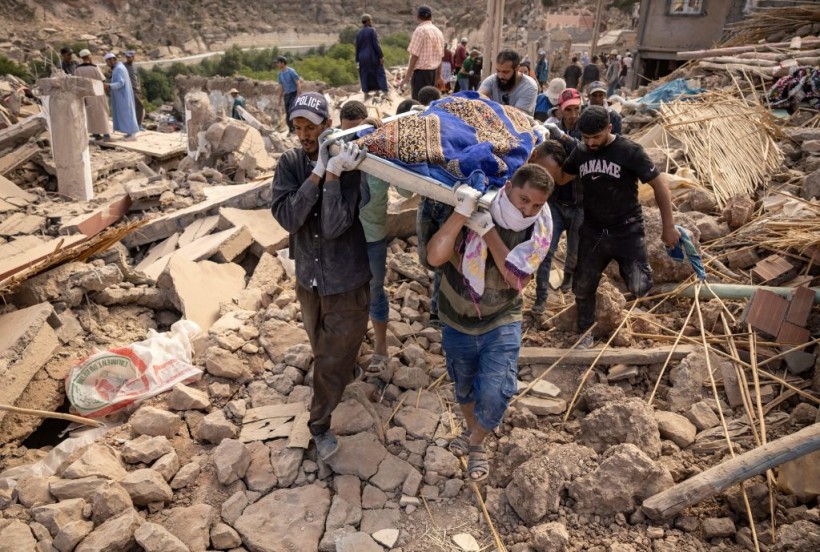Rescuers have continued their operations to search for survivors in the deadliest earthquake in Morocco.

With search dogs, rescuers stepped up their efforts to reach more of the remote areas that were hit in the Atlas Mountains.
Authorities said that there were reports stating that some villages have been flattened.
Some foreign rescuers have already flown in to help after the North African country's strongest quake had claimed the lives of at least 2,122 people and injured more than 2,400 others, many of whom are in serious and critical conditions.
Damaging effects of the quake
Most fatalities are reported in al-Haouz municipality.
So far, the number of damaged and destroyed buildings and facilities remain unknown but authorities already estimated them to reach hundreds.
Furthermore, the earthquake mainly affected villages near Marrakesh where houses are old and vulnerable to earthquakes.
The number of fatalities is expected to increase as an unknown number of people are feared to be trapped in collapsed buildings and are waiting for rescue.
To recall, the US Geological Survey's National Earthquake Information Center detected the relatively shallow earthquake, at a depth of about ~26 km, or 16 miles, near the town of Oukaïmedene.
The rural area, which is about 75 km (50 miles) southwest of Marrakech, houses many residences that are considered to be vulnerable to shaking.
The number of residents exposed to the earthquake's impact and living withing 50 km from the epicenter has been estimated at 380,000 people, including nearly 30,000 people living withing 15 km from the epicenter and considered to be the most impacted by the tremors.
Authorities said that the most affected areas are the remote villages in mountainous areas that are considered difficult to reach and access.
In addition, roads leading to those areas need to be cleared from rubble and collapsed stones so that the rescue teams and ambulances would be able to reach the people in need.
Officials said that there are also people staying in their cars on those roads, which are causing traffic and delays in rescue operations.
Assistance
Authorities said that the magnitude 6.8 temblor was the hardest to hit Morocco in 120 years.
According to the UNICEF, aftershocks are likely to continue in the hours and days ahead after a powerful earthquake, which may place children and families at further risk.
The UNICEF noted that in such emergencies, children have always been among the most vulnerable.
Many children as well as their families could have been displaced by the earthquake and are in urgent need of assistance.
"While it is still unclear how many children have been impacted by the destruction, many people, including children, are likely to have been displaced due to their homes being destroyed, or because they are afraid of returning to damaged homes," the UNICEF said.
The UNICEF vowed that it is following the situation closely and is ready to support the government of Morocco to meet the urgent needs of families.
The group said that in the long term, children and families affected will need shelter, safe drinking water, health and medical help, and food and nutrition support.
Many countries already committed to help in the recovery of Morocco.
Related Article: Morocco Quake Becomes Deadliest As Over 2,000 Killed; Days Of National Mourning Declared
Related Video:
© 2024 NatureWorldNews.com All rights reserved. Do not reproduce without permission.




![Roundworms with Short Memories 'Stop Forgetting' When Frozen or Given Lithium [Study]](https://1471793142.rsc.cdn77.org/data/thumbs/full/70295/280/157/50/40/roundworms-with-short-memories-stop-forgetting-when-frozen-or-given-lithium-study.jpg)
